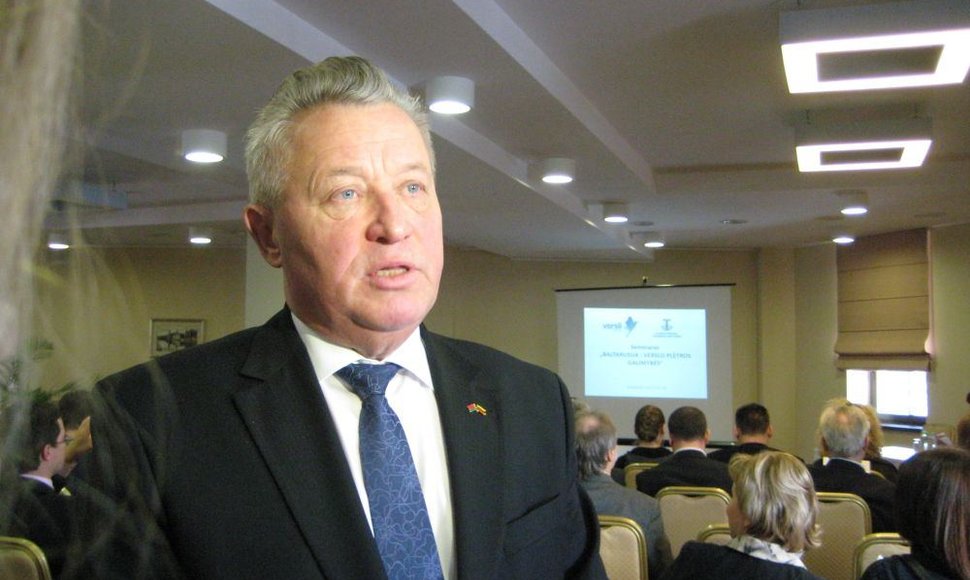Last week, Lithuania's Foreign Minister Linas Linkevičius said he expected progress in connection to the Belarusian political prisoner issue within the next year.
"I would not want to comment on your position. Why? Because today we're having a press conference about preparations for the 9th Lithuanian-Belarusian economic forum. Today I am focusing my attention on matters related with development of economic relations, transit, logistics, development of cargo and trade, interregional and humanitarian cooperation. I would want to say that we should continue the economic dialogue at this news conference," Drazhin told journalists on Wednesday, refusing to comment on the Lithuanian diplomacy chief's attempts to address the issue of political prisoners.
"You know, today I am the supporter of development of the economic process. I want to say that we have reached a level which we describe as strategic partnership between two countries – the Republic of Belarus and the Lithuanian state. We greatly benefit from this, both Belarus and Lithuania," the Belarusian diplomat said.
In a speech at the International Relations and Political Science Institute of Vilnius University last week, the Lithuanian foreign minister said he would want Belarus to stay on its European course.
"I'm talking about a political dialogue, about the situation with political prisoners. Some of them are suffering under particularly humiliating circumstances. We understand it's not easy but we hope that our Belarusian colleagues comprehend the situation, we think and hope they will change their attitude," Linkevičius said.
The relationship between the EU, including Lithuania, and Belarus turned colder after the December 2010 presidential election, which was victorious for the authoritarian President Alexander Lukashenko. In the following weeks, the regime mistreated the opposition, violently suppressed demonstrations and sent opponents and human rights defenders to prisons.












